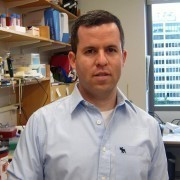B.Med.Sc., 2008, Tel Aviv University, Tel Aviv, Israel
Ph.D., 2012, Weizmann Institute of Science, Rehovot, Israel
Post-doctoral fellowship, 2012-17, Whitehead Institute for Biological Research, Cambridge, MA, USA

B.Med.Sc., 2008, Tel Aviv University, Tel Aviv, Israel
Ph.D., 2012, Weizmann Institute of Science, Rehovot, Israel
Post-doctoral fellowship, 2012-17, Whitehead Institute for Biological Research, Cambridge, MA, USA
Regeneration, the process of regrowing missing tissues, is widespread in the animal kingdom. Following an injury, regenerative organisms activate molecular and cellular processes that lead to the formation of new tissues. Despite the importance of regeneration to human health and decades of regeneration research, fundamental questions remain open: Why do certain animals regenerate while other species cannot? Why can certain tissues (e.g., the liver) regrow, whereas other tissues have very limited healing potential?
We study these questions by using organisms that regenerate extremely quickly and robustly. We work extensively with planarians, flatworms that regrow any missing part of their bodies, including their brain, in less than a week.
Our major interests are:
Our scientific approaches include molecular biology, in vivo analysis and bioinformatics.
Please visit our website: www.wurtzellab.org